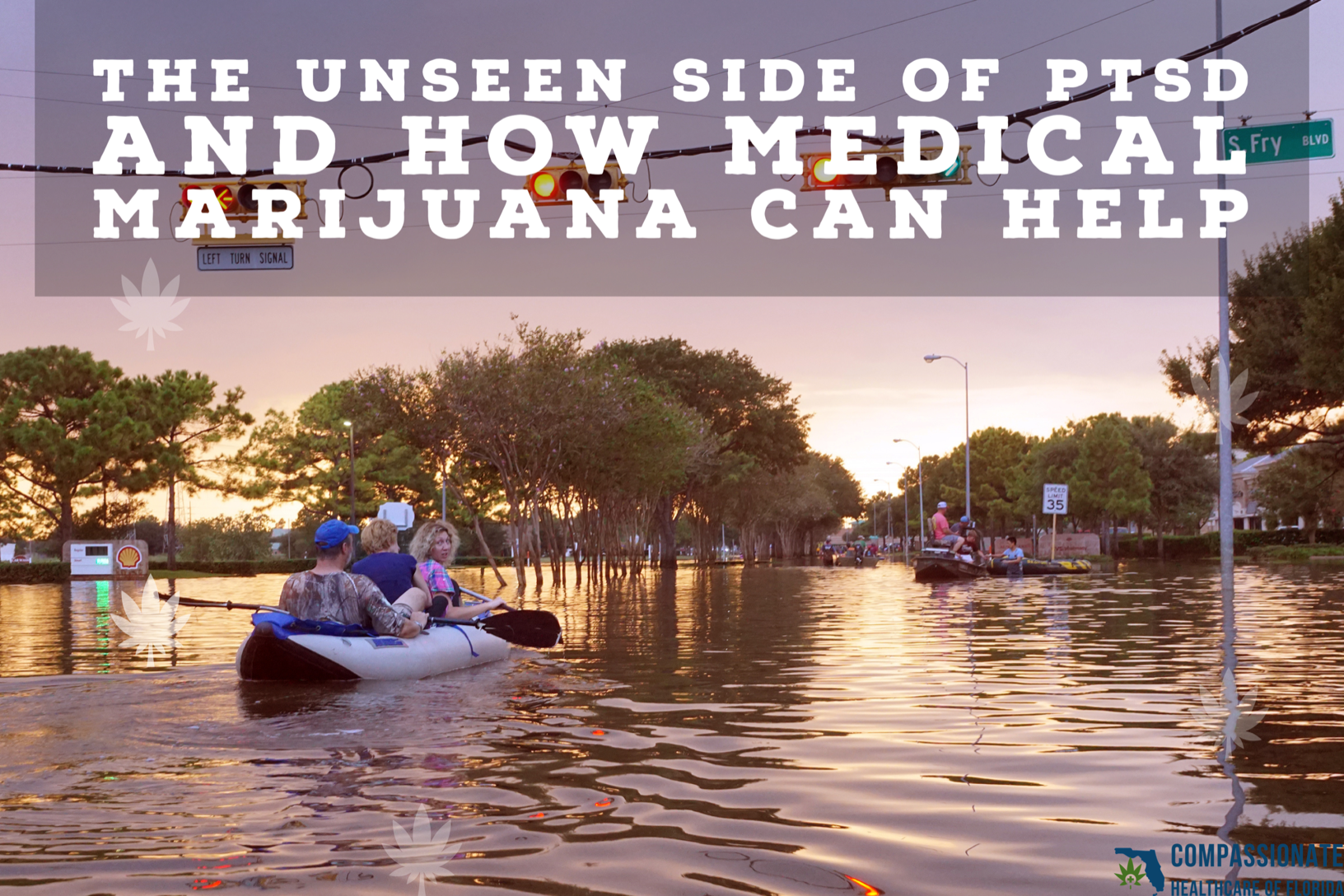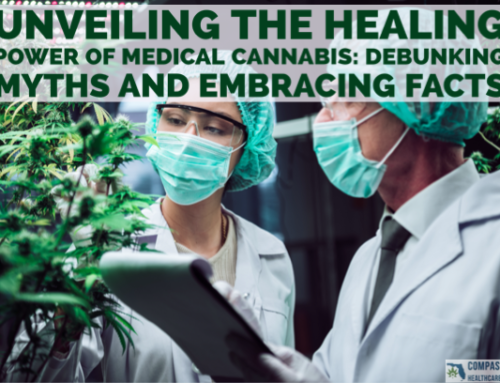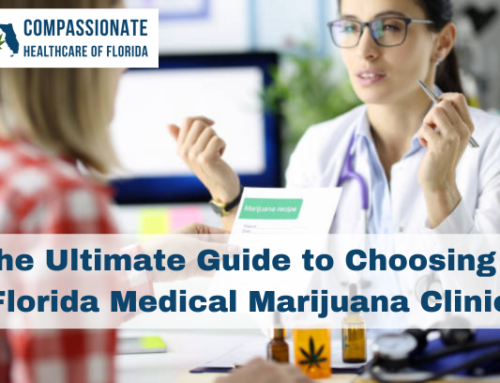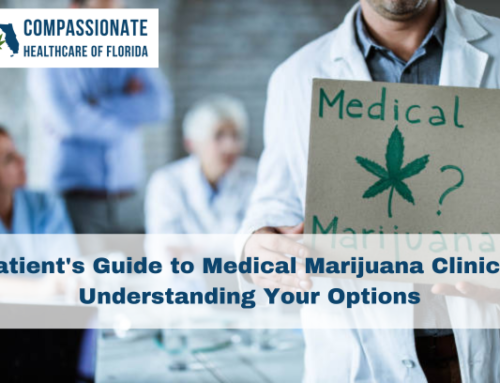
Although PTSD is a psychiatric disorder routinely associated with wars, violent crime, and physical trauma — it’s increasingly tied to natural disasters, the COVID-19 pandemic, and even relationship breakups.
From increased sleep to reduced stress, medical marijuana is a leading treatment as the world navigates a changing landscape filled with PTSD pitfalls. Read along as we discuss how medical marijuana can assist with the unseen side of PTSD to improve the lives of thousands of Americans.
What is PTSD?
PTSD (post-traumatic stress disorder) is a psychiatric disorder affecting over 3 million individuals annually.
The condition begins after a traumatic event, such as a soldier’s experience on the battlefield or witnessing a violent crime. Overall, individuals who experience PTSD have flashbacks of the event, producing extreme sensations of anxiety, depression, stress, insomnia, and other adverse effects.
However, trauma is a broad experience and may encompass many different experiences. With a more comprehensive understanding of traumatic events, researchers find that many individuals are at increased risk of experiencing PTSD.
Below, we’ll discuss three significant causes of PTSD that are not commonly associated with the psychiatric disorder.
Natural Disasters and PTSD
Scientists sound the alarm as hurricanes, drought, fires, and flooding increase in severity and frequency.
As climate change alters the landscape and weather, it also negatively impacts individuals living in at-risk areas. For example, studies show destructive hurricanes leave not only destroyed communities but battered individuals with an increased likelihood of PTSD.
Whether an individual is hurt or not, viewing the destruction of a natural disaster is extremely stressful and can lead to trauma. However, as natural disasters increase in frequency (i.e., fires, hurricanes, and tornados), individuals are at risk for chronic trauma, leading to prolonged feelings of PTSD.
From Hurricane Ian in Florida to the August Complex Fire in California, millions of individuals are at heightened risk for natural-disaster-related PTSD.
The figures found during studies are staggering: 30-40% of individuals who experience natural disasters have PTSD. In comparison, roughly 5-19% of the general population experienced PTSD unrelated to natural disasters.
Ultimately, the increasing rate of natural disasters caused by worsening climate change pushes more individuals toward PTSD. From physical environmental effects to psychiatric disorders, the world is experiencing a dual problem that may worsen as world leaders fail to implement sound climate-friendly policies.
COVID-19 and PTSD
Another primary culprit for PTSD is the COVID-19 pandemic.
COVID reached every inch of the globe and left no stone unturned in its nearly three-year existence. With almost 7 million deaths and countless cases, COVID has affected the world’s entire population.
One of the most concerning aspects of COVID-19 is its prevalence of increased chances of PTSD. Grief, illness, isolation, financial loss, and other stressors are the hallmark effects of COVID-19, and researchers are finding that 30% of individuals studied suffered from PTSD related to the pandemic.
Ultimately, the pandemic shows an unseen side of PTSD because it’s occurring due to the overall results of COVID-19. Researchers are finding how deep the pandemic has reached regarding community exposure to PTSD, from school closures to long-term isolation.
Relationship Breakups and PTSD
From a sudden breakup to a prolonged divorce, the end of a relationship can cause PTSD.
Relationship breakups produce feelings of anxiety, depression, and insomnia — core components of PTSD. Furthermore, PTSD can be exacerbated if the relationship is abusive, resulting in complex trauma.
Traditionally, PTSD was attributed to direct traumatic events. However, researchers are finding high-stress emotional events such as the end of a relationship to fall into PTSD territory.
How Medical Marijuana Can Assist PTSD
For years, anecdotal evidence from veterans pointed towards cannabis as a helpful substance for relieving PTSD symptoms.
Now, scientists have produced hard evidence that medical marijuana can, in fact, assist with PTSD. Research shows that multiple cannabinoids, such as THC, CBD, and nabilone (THC analog), improve quality of life by reducing PTSD-related symptoms.
Medical marijuana and hemp are known to promote the following:
- Improved sleep
- Reduced stress
- Decreased anxiety and depression
- Increased social bonding
- Elevated mood
Although there are a few known side effects, such as dry mouth, headaches, and red eyes, the pros outweigh the cons.
Overall, medical marijuana is an effective and therapeutic substance that can relieve a variety of symptoms associated with PTSD. By alleviating multiple symptoms, individuals can start the path toward a life free from PTSD.
However, medical marijuana should be consumed responsibly when experiencing PTSD. Every individual may react differently to the effects of cannabis, making it necessary to consume small doses at first.
Why PTSD Patients are Beginning to Try Medical Marijuana Compared to Traditional Antidepressants
Although traditional antidepressant treatments exist, many patients with diagnosed PTSD do not want to consume pills that alter their brain chemistry.
Due to this, medical marijuana has become a popular option for individuals with ongoing PTSD. Reasoning from the fact that cannabis is natural to a decreased likelihood of dependency is key to understanding why PTSD patients look towards MMJ compared to traditional treatments.
Apply for a Medical Marijuana Card in Florida for PTSD
PTSD is an eligible condition for medical marijuana in Florida.
If you’ve experienced physical or emotional trauma, medical marijuana may assist your ongoing symptoms related to PTSD. From recent hurricanes to negative interpersonal relationships, medical marijuana can ease symptoms so you can get back to living the life you want to live.
Compassionate Healthcare of Florida is ready to assist you during your application to ensure you receive your medical marijuana card in no time. With ample medical marijuana dispensary selection to lab-tested products, there’s no better time than now to apply or renew your medical marijuana card in Florida.



